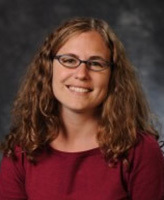Four faculty fellows from Notre Dame’s Institute for Latino Studies have recently published their first books. The Institute will host a book launch and reception on Monday, February 3, from 4:30 to 6:30 p.m. in McKenna Hall, honoring affiliated faculty members Jaime Pensado, Yael Prizant, Ricardo Ramírez, and Jason Ruiz. There will be a brief presentation at 5 p.m.
 Jaime Pensado
Jaime Pensado
Pensado, The Carl E. Koch Assistant Professor of History in the University’s College of Arts and Letters, published Pensado’s Rebel Mexico: Student Unrest and Authoritarian Political Culture during the Long Sixties (Stanford University Press, 2013). His work traces the rise, growth, and consequences of Mexico’s “student problem” during the long sixties (1956-1971). The volume closely analyzes student politics and youth culture during this period, as well as reactions to them on the part of competing actors. Examining student unrest and youthful militancy in the forms of sponsored student thuggery (porrismo), provocation, clientelism (charrismo estudiantil), and fun (relajo), Pensado offers insight into larger issues of state formation and resistance. He draws particular attention to the shifting notions of youth in Cold War Mexico and details the impact of the Cuban Revolution in Mexico’s universities. In doing so, Pensado demonstrates the ways in which deviating authorities—inside and outside the government—responded differently to student unrest, and provides a compelling explanation for the longevity of the Partido Revolucionario Institucional. Historian Eric Zolov contends that Pensado’s important “work will quickly shoot up to the top of required reading on the Global Sixties as well as twentieth-century Mexico.”
 Yael Prizant
Yael Prizant
Prizant, an assistant professor in the Department of Film, Television, and Theatre, has received high praise for her book, Cuba Inside Out: Revolution and Contemporary Theatre (Southern Illinois University Press, 2013). Frederick Luis Aldama, the Arts & Humanities Distinguished Professor of English at Ohio State University, notes that “Prizant brilliantly shows the different social and historical contexts that led Cuban playwrights to their delicate dances between form and content to ensure creative innovation and expression.” The Cuban Revolution’s resistance to and intersections with globalization, modernity, emigration and privilege are central to the performances examined in the study. The first book-length study in English of Cuban and Cuban American plays, Cuba Inside Out provides a framework for understanding texts and performances that support, challenge, and transgress boundaries of exile and nationalism. Prizant reveals the intricacies of how revolution is staged theatrically, socially, and politically on the island and in the Cuban diaspora. This close examination of seven plays written since 1985 seeks to alter how U.S. audiences perceive Cuba, its circumstances, and its theatre.
 Ricardo Ramírez
Ricardo Ramírez
Ramírez, an associate professor in the Department of Political Science, published Mobilizing Opportunities: The Evolving Latino Electorate and the Future of American Politics (University of Virginia Press, 2013). His research examines a widely acknowledged shift in perception of Latinos from uncertain political relevance in 1990 to a sense that they are redefining American democracy in 2012. However, Ramírez demonstrates that this is not a story of revolutionary change. Rather, it is a story of evolutionary change in the Latino electorate and the sources of growth of Latino eligible voters. Mobilizing Opportunities presents a novel approach to show the relevance of Latino demographic change for American politics will be determined not by their presence nationally or vis-à-vis national party politics, but by the extent to which the influx of Latinos into state politics is gradual and expected or sudden and unexpected. The volume identifies the convergence of Latino organizational efforts to enhance civic infrastructure with the political activation of Latinos as residents, citizens, and voters in response to contentious political contexts. Mobilizing Opportunities has been acclaimed as “destined to become the most important book in Latino politics for the next generation.”
 Jason Ruiz
Jason Ruiz
Ruiz, an assistant professor in the Department of American Studies, examines travel to Mexico during the long dictatorship of Porfirio Díaz (1876-1911) in his work, Americans in the Treasure House: Travel to Porfirian Mexico and the Cultural Politics of Empire (University of Texas Press, 2014). He focuses especially on the role of travelers in shaping ideas of Mexico as a logical place for Americans to extend their economic and cultural influence in the hemisphere. Overland travel between the United States and Mexico became instantly faster, smoother, and cheaper when workers connected the two countries’ rail lines in 1884, creating intense curiosity in the United States about Mexico, its people, and its opportunities for business and pleasure. These travelers created a rich and varied record of their journeys, constructing Mexico as a nation at the cusp of modernity but requiring foreign intervention to reach its full potential. Through extensive engagement with archival sources, Americans in the Treasure House traces the history of travel to Mexico during the Porfiriato and the decade-long revolution that followed. Perhaps more importantly, it relates the dramatic rises in travel and travel discourse to complex questions about national identity, state power, and economic relations across the U.S.-Mexico border.
Created in 1999, the Institute for Latino Studies plays a vital role in fostering understanding of the U.S. Latino experience. Building upon the outstanding intellectual legacy of Julian Samora, a pioneering Latino scholar and professor in Notre Dame’s Department of Sociology, the Institute supports interdisciplinary initiatives in Latino studies as a key component of the University’s academic mission. By advancing research, expanding knowledge, and strengthening community, the Institute is true to the mission, tradition, and distinctively Catholic values of Notre Dame. The Institute is a member of the Inter-University Program for Latino Research.
Learn More >
- Book Launch and Reception
- Institute for Latino Studies
- Jaime Pensado faculty page
- Yael Prizant faculty page
- Ricardo Ramírez faculty page
- Jason Ruiz faculty page
- Department of American Studies
- Department of Film, Television, and Theatre
- Department of History
- Department of Political Science
- Department of Sociology
Originally published by at al.nd.edu on January 23, 2014.